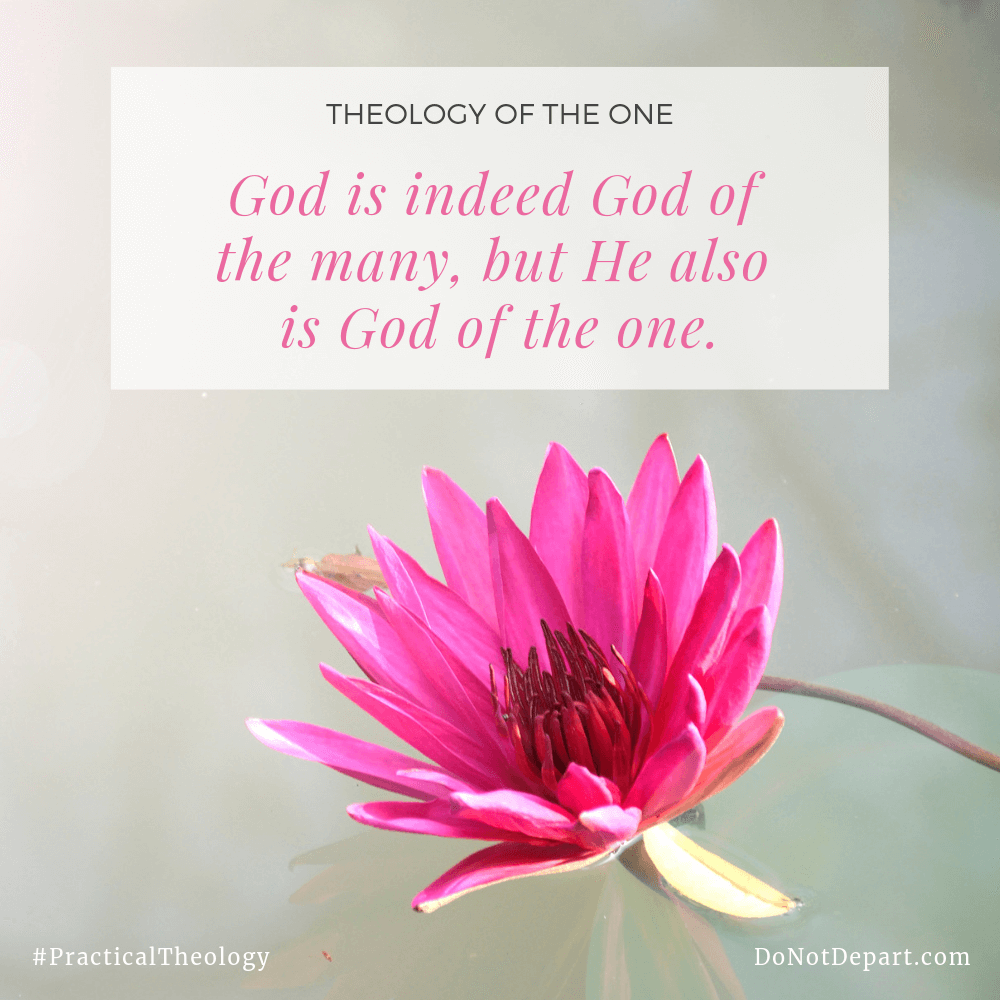The shallows of the Sea of Galilee made for unsuccessful fishing, so Jesus instructed His disciples, “Put out into deep water, and let down the nets for a catch” (Luke 5:4, NIV). In the same way, Jesus always leads me to deeper knowledge, deeper commitment, deeper faith— deeper water.

Know the Son; Know the Father
In the first chapter of the Book of John, the Gospel writer proclaims:
No one has ever seen God, but the one and only Son, who is himself God and is in closest relationship with the Father, has made him known. (John 1:18, NIV)
In order to know God well I need Jesus to guide me. He discloses God’s heart to me. Each attribute of God presents a deep theological truth with radical and practical implications. As my faith matures, I want this practical theology to envelop my life.
Follow the Son; Experience the Father
Jesus asks me to follow Him into deep places, so I can experience God’s active engagement and presence. God wants to go deep and rid me of my sin. The closer I follow Jesus, the more sin I see. My frailty and brokenness in the light of God’s holiness and forgiveness compels me to repent and hastens my maturity in Christ (1 John 1:9).
Also necessary for spiritual maturity is practice. As an athlete must undergo conditioning to get to the next level in a sport, practicing spiritual disciplines (prayer, worship, Bible reading/study, fasting, etc.) gets me ready to plumb the depths of my faith. I follow Jesus’ model of these disciplines, and discover more about God.
Even as spiritual disciplines help me follow Jesus, I see greater growth when I am faced with difficult circumstances. Trials and hardships force me to trust God and yield control to Him. As I mature in Christ, I start to uncover the meaning of these verses:
Count it all joy, my brothers, when you meet trials of various kinds, for you know that the testing of your faith produces steadfastness. And let steadfastness have its full effect, that you may be perfect and complete, lacking in nothing. (James 1:2-4)
Because I know Jesus, I trust God will meet me, support me, and work His will in me no matter the trials that come. I know this deep place isn’t for the faint of heart, it’s for those who believe.
Bear Witness to the Son; Make Known the Father
As Jesus takes me out to deep water, I am asked to bear witness to His light and love as I encounter and engage the world. Jesus said, “. . . Anyone who has seen me has seen the Father. . .” (John 14:9, NIV) In order for others to see God, they first have to see Jesus in me. As I mature in Christ, living like Him takes on new challenges. I am working to love the unlovely (the people who get “under my skin” or goad me), give sacrificially, forgive when it’s difficult, and obey when the cost is high.
Furthermore, when I have the attitude and posture of a servant, people see the God who serves:
. . . he made himself nothing
by taking the very nature of a servant,
being made in human likeness. (Philippians 2:7)
As I mature in Christ, I look to serve by creating more critical conversations— listening more and talking less, so the world knows God listens. So, the world knows God does not have tribes, I am developing friendships outside my Christian circles. I seek to love people the way Jesus would, so the world knows God is compassionate.
It is my prayer that you will “put out into deep water” as you seek to know God, experience God and make Him known. I leave you with this prayer from Ephesians 3:17-19:
And I ask him that with both feet planted firmly on love, you’ll be able to take in with all followers of Jesus the extravagant dimensions of Christ’s love. Reach out and experience the breadth! Test its length! Plumb the depths! Rise to the heights! Live full lives, full in the fullness of God. (MSG)
Community Conversation
What does “going deep” with Jesus look like to you? In what ways does it deepen your understanding of God and life application?




















